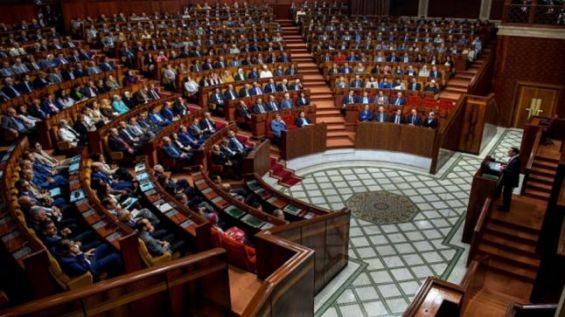In May, the struggle of Moroccan women working in Huelva’s strawberry fields made headlines. Dozens of them spoke to media, denouncing alleged sexual abuses, while others bravely opened up about their experiences in the fields, seeking the help of the Spanish authorities.
In the Moroccan parliament, the Commission for Social Sectors at the House of Representatives requested the creation of a fact-finding mission. The latter was initiated by the body to visit Spain and collect information on the women in question and the situation of others in the province.
The parliament refusal
A few weeks later, the Commission’s submitted proposal was rejected by the House of Representatives, citing the Chamber’s internal regulations. Speaking to Yabiladi, Saida Ait Bouali who heads the Commission stressed that contrary to what she was thinking before, such a mission cannot be conducted outside the Moroccan territory.
The Istiqlal MP told Yabiladi that, indeed, article 107 from the House of Representatives’ internal regulation prohibits the establishment of such missions. As strange as it might seem, the article in question did not include any explicit expression, banning MPs from going on fact-finding missions to other countries.
In her interpretation of the text, Ait Bouali explained to Yabiladi, last Thursday, that the «mission must collect information related to sectors, fields and institutions that fall within the competences of the Commission in question».
Why is it prohibited ?
In an attempt to have a more detailed explanation on the text, Yabiladi contacted MP Abdellah Bounaou of the PJD party, who provided the same interpretation given earlier this month by the House of Representatives : «It is utterly impossible to send fact-finding missions to other countries and vice versa», he firmly stated.
Political scientist Omar Cherkaoui shared the same opinion as Bouanou, stressing that «the clause was interpreted in the right way», citing issues regarding sovereignty.
To have an academic analysis of the situation and the article in particular, Yabiladi contacted Abdelhafid Adminou, a constitutional law professor at Mohamed V University. Adminou stated that «it is impossible for a parliament mission to operate outside the Kingdom, simply because other countries such as France cannot send similar missions to the Kingdom».
«It is a universal precept : a parliament cannot send fact-finding missions to other countries», he stressed.
A French mission in Morocco
After looking into missions sent by France to other countries, Yabiladi stumbled upon one that was conducted in the Kingdom by a French Foreign affairs Commission in April, 2016.
Headed by Guy Teissier, member of the National Assembly of France, the mission came to Morocco to collect information on European cooperation with the Maghreb countries. While in the Kingdom, members of the French parliament mission met, on September the 6th, 2016, Abdelilah Benkirane, who was Prime Minister at the time, as well as Nasser Bourita, the Minister of State for Foreign Affairs, and Driss Yazami, head of the National Human Rights Council.
The French mission has even published a report on its Morocco visit on the French National Assembly's website, giving details on the meetings attended by the Commission’s members.
But how can Morocco accept such a mission if in exchange the Kingdom's parliament cannot do the same, especially if the issue is related to Moroccans working and living abroad ?
A fact-finding mission can operate abroad
To answer that question, Yabiladi spoke to Moroccan political scientist Abderrahim Elaalam who gave a different interpretation to article 107.
«I have already read article 107 from the House of Representatives’ internal regulation and I see that there is no explicit prohibition that blocks a parliamentary fact-finding mission from visiting foreign countries», he told Yabiladi.
«I think that the Commission of Social Affairs at the House of Representatives is allowed to conduct a find-finding mission in Spain because it is entitled to enquire on issues related to the Moroccan society», he explained.
For the Qadi Ayyad university professor, sending such a mission to Spain is totally acceptable since the Commission that requested its creation is in charge of social affairs. «Because we are talking about a problem that is related to Moroccan citizens in Spain, the mission is allowed to travel», he added.
Moreover, Elaalam pointed out that the text itself does not prohibit nor set geographical boundaries for the proposal. He has even referred to a sentence in the article that limits the establishment of parliament missions to «issues related to the Moroccan society».
«The commission can seek the Constitutional Court or urge the parliament to be more precise in the article regulating the works of parliamentary missions to avoid ambiguity», he argued.
Although some parties have not deemed there was any ambiguity in article 107, which was cited by the Parliament when rejecting the establishment of a fact-finding mission to Huelva, it is worth noting that this sets aside a way to enquire on a sensitive matter.





 chargement...
chargement...













